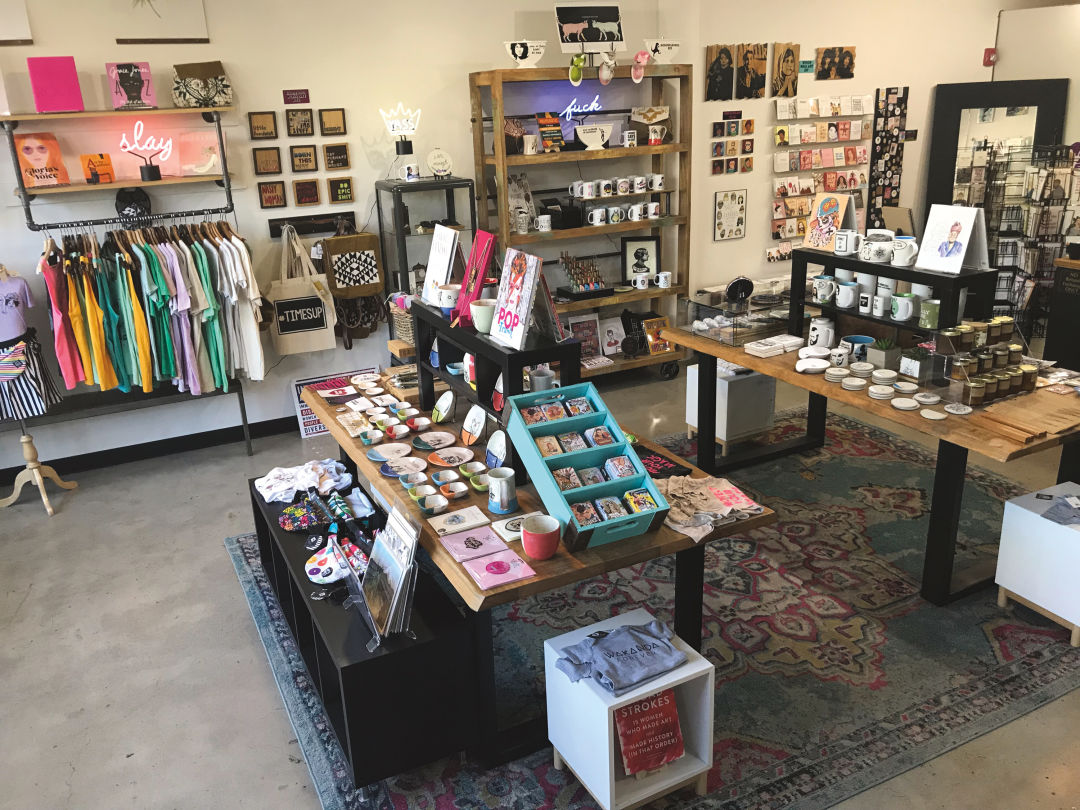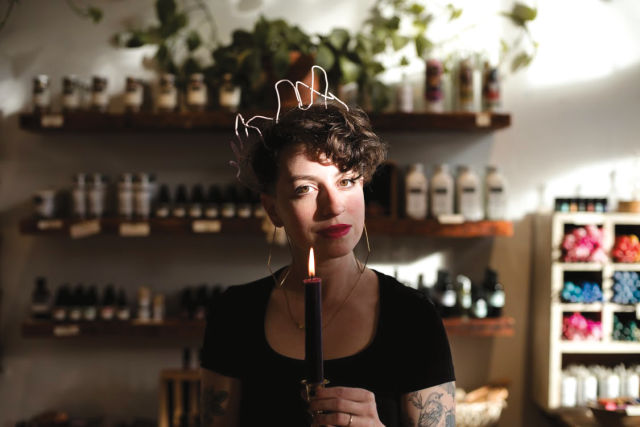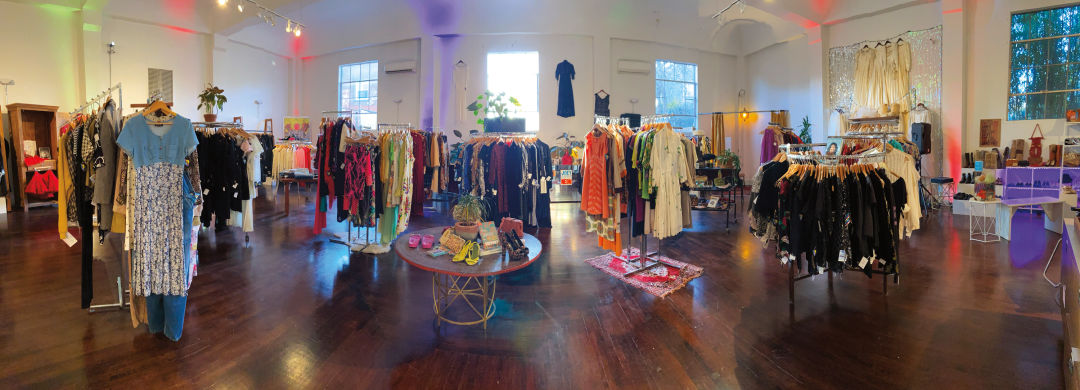Coronavirus Has Devastated Portland’s Queer-Owned Businesses

Image: Courtesy Jenn Lazar
Ask Jenn Lazar whether queer-owned art galleries like hers will survive postcoronavirus, and she isn’t optimistic.
Lazar and her wife, Cara Centko, own Southeast Portland’s Citizen Ruth, where they sell products from more than 250 artists around the world, plus pieces made in-house (think Schitt's Creek mugs and San Junipero bumper stickers).
Due to coronavirus Lazar has lost around $120,000 and, before a Paycheck Protection Program loan came through, had to lay off all but two employees. Her store is one of many local, queer-owned businesses that have been particularly devastated by COVID-19. This Pride month, more than ever, Lazar and others are depending on Portlanders for support.
While retailers everywhere are struggling, inequitable access to funds make weathering the coronavirus fallout significantly more difficult for queer- and minority-owned businesses. Relief funds from the Small Business Administration are helping keep some queer-owned stores like Citizen Ruth afloat, but other loans are hard to come by.

Image: Courtesy Kale Chesney
“There are a lot more roadblocks [for queer business owners] than someone who is, say, a straight white man. The biases range from access to loans to customer biases,” says Max Turk, owner of Roots and Crowns, which sells teas, skin care, and other self-care products. “Realizing that fundamentally, queer-owned businesses may have had to jump through more hoops than others compounds the direness of these times,” she says. Citizen Ruth has been in business for 13 years, and the SBA coronavirus-relief loan was the first it’s ever been approved for.
Both Turk and Mads Ambrose, owner of gender-affirming waxing salon Babe Wax, are ineligible for much CARES Act aid because their businesses are so small. Ambrose—who also offers waxing funds to low-income trans women and trans feminine clients—recently relocated to Bold and Badass gym, a queer and body-positive fitness center in Southeast, after being priced out of an old space. [UPDATE: As of 6/30, Ambrose says Babe Wax has closed permanently.]

Image: Courtesy Citizen Ruth
“As a queer business owner, finding a space to work out of can be challenging,” Ambrose says. “I have to know the space is as safe as possible for queer and trans people. I can’t work out of any typical salon and, frankly, don’t fit into those spaces myself.”
Dreamy Sea, owner of NE Alberta Street’s Psychic Sister, is also preparing for the worst. Psychic Sister, a magic shop that sells
everything from vintage clothes to crystals, has already lost 95 percent of its revenue and eight employees. The closure of Psychic Sister’s storefront also affects 59 local contractors—predominantly queer psychic, tarot, and astrology readers.
“I’m feeling for all my vendors because it’ll be months before I’m able to make any reorders,” Sea says.
Sea and others say shopping locally is vital. If monetary support isn*t possible for everyone, support on social media also goes a long way.

Image: Courtesy Jenn Lazar
For those who have funds to share, Psychic Sister offers phone psychic readings and private shopping appointments. Citizen Ruth will send personalized care packages that might include a Golden Girls mug, and Roots and Crowns sells apothecary goods and sliding-scale downloadable e-zines online.
“This is a time that highlights how much websites like Amazon and Walmart will get even further ahead if we don’t pay attention and make choices with our dollars,” Turk says. “Do we want to come out of this with all our favorite local shops and restaurants shuttered? Or do we want to collectively vote with our dollars and keep our local economy dynamic and beautiful?”




